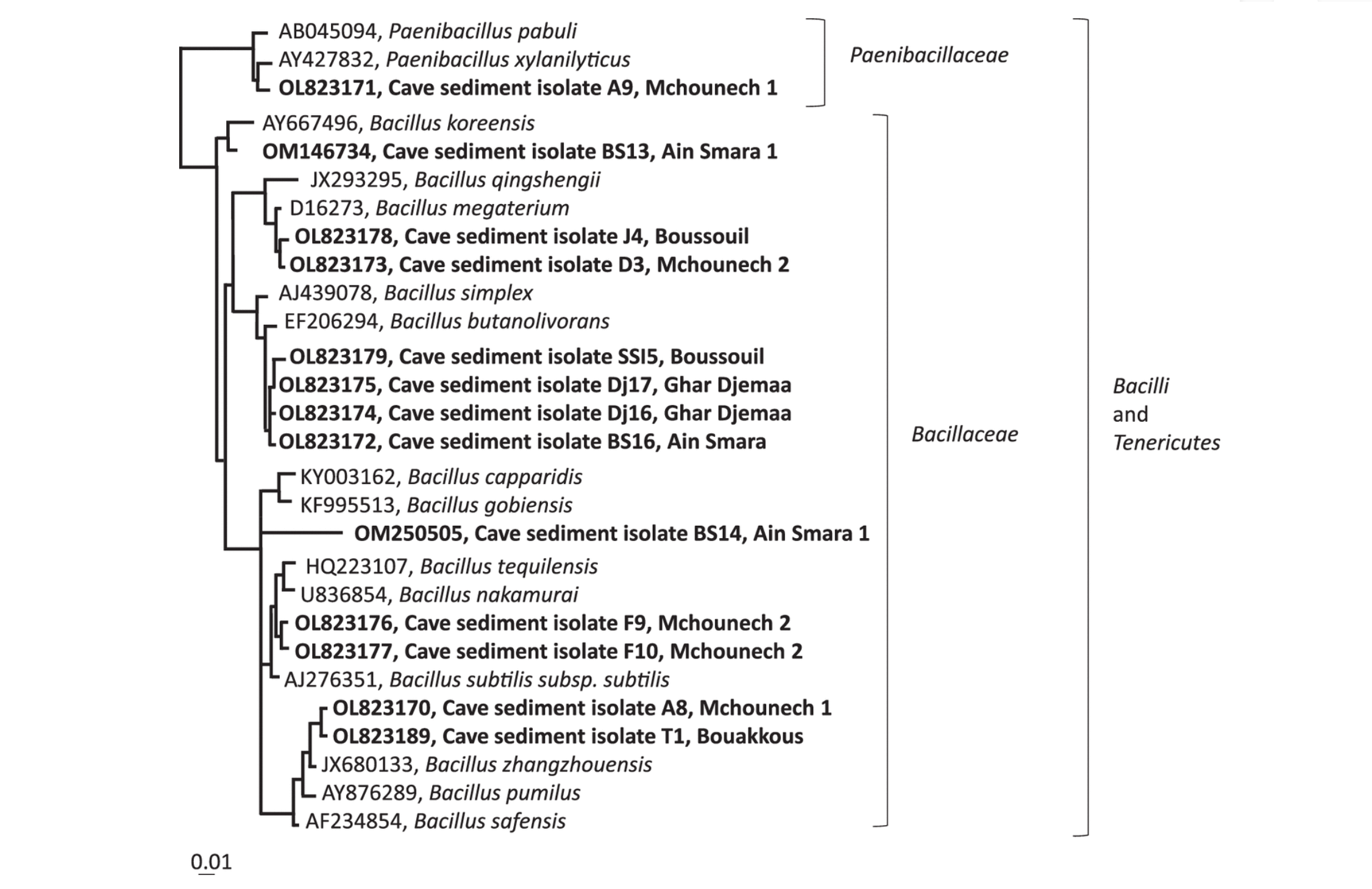A team of researchers from Umeå University, SLU and Algeria have found bacteria with a number of interesting properties in previously unexplored caves at a depth of several hundred meters in Algeria.
One of these properties is the breakdown of gluten, which can therefore be of interest to people with gluten allergies. The results are published in Spectrum Microbiology, published by the American Society of Microbiology.
“This study is another example of the fantastic potential of exciting microbes on our own planet. Despite intensive research, we have so far only been able to map a small part of all the microbes found on earth,” says Natuschka Lee, researcher at the Department of Ecology and Environmental Sciences at Umeå University.
When Jules Verne wrote his novel Journey to the Center of the Earth, many people played down the wild fantasies of life in the underworld. It was several decades before biologists began to seriously study underground life.
Today we know that at least 30 percent of all microorganisms on earth live deep underground – under completely different conditions than life forms on the earth’s surface, for example without sunlight and therefore without plants. Studying subterranean life forms can give us interesting insights into how life can evolve differently on Earth and whether there may be subterranean life on other celestial bodies such as the planet Mars.
Caves can serve as a natural gateway to the underworld. Caves are found all over the world, but only a fraction of them have been explored. In the last decade caving has received a lot of interest – even in the context of space exploration as some planets like Mars have found many caves.
In the current study, Natuschka Lee worked in collaboration with Baraa Rehamnia, until recently a visiting doctoral student at Constantine University in Algeria (who is preparing her dissertation on this research topic in summer 2022) and Ramune Kuktaite, researcher at the Department of Plant Breeding, at SLU in Alnarp, searched for interesting characteristics of spore-forming bacteria in previously unexplored caves in Algeria at a depth of several hundred meters.
These bacteria are closely related to the Bacillus group, a group of bacteria that has been much studied in astrobiology for their impressive survivability, and which play an important role on our own planet in various contexts, partly as pathogens, partly as beneficial microbes in ecological and ecologically biotechnological contexts.
“For example, we have found strains that can produce antimicrobial substances or break down gluten, a substance that can cause inflammatory reactions in the gut in many people. It was also found that the bacteria can tolerate the extreme conditions in our digestive system,” says Natuschka Lee.
In the future, the researchers will investigate whether these bacteria can be of use to the biotechnology industry, for example in the case of gluten allergies.
About the scientific article:
Screening of spore-forming bacteria with probiotic potential in pristine Algerian caves, Baraa Rehamia, Natuschka Lee, Ramune Kuktaite, Noreddine Kacem Chaouche, Microbiology Spectrum, DOI
More information:
USGS caves on planet Mars
For more information, please contact:
Natuschka Lee, Department of Ecology and Environmental Sciences at Umeå University
Email: [email protected]
Phone:+46 70 375 12 13
astrobiology
#Discovery #exciting #bacteria #underground #caves #North #Africa #Astrobiology


Leave a Comment